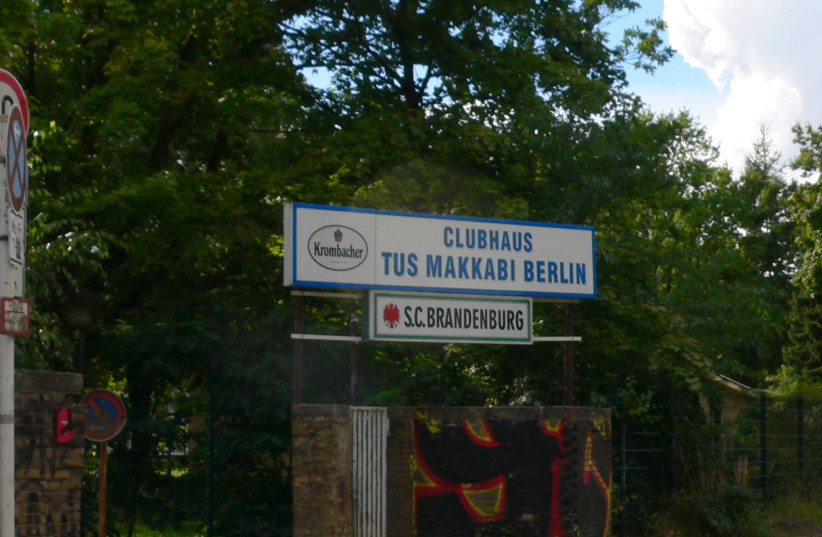When Makkabi Berlin takes the field on Sunday, the German soccer club founded by Holocaust survivors will make history.
Makkabi will be the first Jewish club to compete in the German Cup, an annual season-long tournament featuring 64 of the country’s best teams — from the amateur level to the Bundesliga, Germany’s top league which features some of the world’s best players.
When the competition was created in 1935, Jews were prohibited from participating.
“I’ve been there from the first day. I never imagined that we — as a Jewish team — would ever be playing a cup game against a Bundesliga team,” club co-founder Marian Wajselfisz told the Associated Press. “So for us, and for me personally, it’s a huge joy.”
Makkabi Berlin was founded in 1970 as the successor to Bar Kochba Berlin, Germany’s first Jewish sports club, which was created in 1898 and named for the famous Jewish military leader. At its peak, it had more than 40,000 members who played in a variety of sports, before the Nazis rose to power.

Diverse backgrounds of Makkabi Berlin players
Today, Makkabi Berlin has 550 members who hail from a variety of backgrounds. The soccer club features players from 15 different countries and includes Jews, Christians, and Muslims. But the team’s crest is still a Star of David.
“This is something we’re extremely proud of,” Makkabi board member Michael Koblenz told the AP. “We’re here, and whoever is ready to play for us, and is also open to playing for a club with Jewish origins and some sort of Jewish culture, we’re absolutely happy to integrate people into our teams.”
The club was recently promoted to the fifth tier of German soccer, NOFV-Oberliga Nord, after winning the Berlin league last summer. Makkabi qualified for the German Cup by winning the Berlin Cup in June, a first for the team.
Their opponent on Sunday, Wolfsburg, plays in the Bundesliga and is owned by Volkswagen. Makkabi’s high-profile matchup means the game will be played in a bigger stadium and will be televised — a rarity for the club’s games.
“The popularity, visibility, and success of Jewish sports clubs symbolize the growth of established Jewish life in Germany and the world,” said the World Jewish Congress.
The WJC hosted a panel discussion on Friday with representatives of Makkabi and Wolfsburg, “to honor and discuss the critical role of Jewish sporting clubs in Europe before the Holocaust and the impact of their resurgence in the modern era,” according to a press release. The warmup shirts the two clubs will wear on Sunday will also feature the WJC logo.
“This week’s match shows us Jewish clubs around the world will always tell a story that is bigger than sport,” Israel Hayom reporter and historian Adi Rubenstein said at the event.
